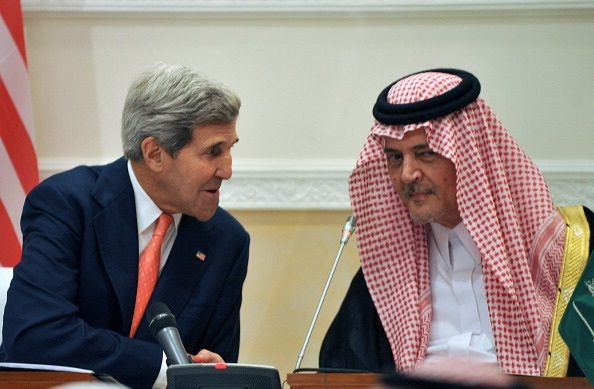US 'Hopes' Saudi Arabia May Reopen Embassy In Iran

The United States hopes that Saudi Arabia may restore diplomatic ties with Iran, a senior State Department official said by phone on Friday ahead of Secretary of State John Kerry's Saturday visit to Riyadh.
Tensions between bitter regional rivals Saudi Arabia and Iran escalated this month after Riyadh's execution of a Shi'ite Muslim cleric triggered an attack by Iranian protesters on its Tehran embassy, leading the kingdom to cut diplomatic ties.
However, the U.S. official said Iranian Supreme Leader Ayatollah Ali Khamenei's statement of regret this week over the embassy storming, which Riyadh accused Tehran of tacitly encouraging, was "significant". Iran denies the allegation.
"Hopefully, maybe that will open up the possibility that the situation will resolve and that the Saudis will find their way forward in reopening their embassy in Tehran," he said.
The official added the United States had no plans to engage on the issue of facilitating a Saudi-Iranian rapprochement, and that Washington - which has no diplomatic ties with Tehran - was not well placed to do so.
He added that Kerry had emphasized to the Iranian and Saudi foreign ministers the importance of reconciliation and that Pakistan's Prime Minister Nawaz Sharif, who visited Riyadh this week, also discussed this with Saudi authorities.
Saudi Arabia and Iran accuse each other of fomenting instability across the Middle East and Riyadh regards Iran's backing for Shi'ite militias in Iraq, Syria, Lebanon and Yemen as a threat to its own security.
Saudi Foreign Minister Adel al-Jubeir has said in several interviews this month that full relations cannot be restored until Iran changes its behavior and acts like a normal state rather than like "a revolution".
(Reporting by David Brunnstrom; Writing by Angus McDowall; Editing by Tom Heneghan)
© Copyright Thomson Reuters 2024. All rights reserved.





















